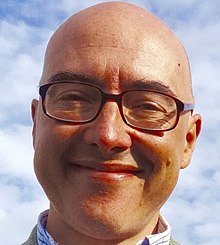
Hilary Whitehall Putnam was an American philosopher, mathematician, computer scientist, and figure in analytic philosophy in the second half of the 20th century. He contributed to the studies of philosophy of mind, philosophy of language, philosophy of mathematics, and philosophy of science. Outside philosophy, Putnam contributed to mathematics and computer science. Together with Martin Davis he developed the Davis–Putnam algorithm for the Boolean satisfiability problem and he helped demonstrate the unsolvability of Hilbert's tenth problem.

Twin Earth is a thought experiment proposed by philosopher Hilary Putnam in his papers "Meaning and Reference" (1973) and "The Meaning of 'Meaning'" (1975). It is meant to serve as an illustration of his argument for semantic externalism, or the view that the meanings of words are not purely psychological. The Twin Earth thought experiment was one of three examples that Putnam offered in support of semantic externalism, the other two being what he called the Aluminum-Molybdenum case and the Beech-Elm case. Since the publication of these cases, numerous variations on the thought experiment have been proposed by philosophers.

John Henry McDowell is a South African philosopher, formerly a fellow of University College, Oxford, and now university professor at the University of Pittsburgh. Although he has written on metaphysics, epistemology, ancient philosophy, nature, and meta-ethics, McDowell's most influential work has been in the philosophy of mind and philosophy of language. McDowell was one of three recipients of the 2010 Andrew W. Mellon Foundation's Distinguished Achievement Award, and is a Fellow of both the American Academy of Arts & Sciences and the British Academy.

Ivor Armstrong Richards CH, known as I. A. Richards, was an English educator, literary critic, poet, and rhetorician. His work contributed to the foundations of New Criticism, a formalist movement in literary theory which emphasized the close reading of a literary text, especially poetry, in an effort to discover how a work of literature functions as a self-contained and self-referential æsthetic object.

In metaphysics, conceptualism is a theory that explains universality of particulars as conceptualized frameworks situated within the thinking mind. Intermediate between nominalism and realism, the conceptualist view approaches the metaphysical concept of universals from a perspective that denies their presence in particulars outside the mind's perception of them. Conceptualism is anti-realist about abstract objects, just like immanent realism is.

Michael Gareth Justin Evans was a British philosopher who made substantial contributions to logic, philosophy of language and philosophy of mind. He is best known for his posthumous work The Varieties of Reference (1982), edited by John McDowell. The book considers different kinds of reference to objects, and argues for a number of conditions that must obtain for reference to occur.

Robert Boyce Brandom is an American philosopher who teaches at the University of Pittsburgh. He works primarily in philosophy of language, philosophy of mind and philosophical logic, and his academic output manifests both systematic and historical interests in these topics. His work has presented "arguably the first fully systematic and technically rigorous attempt to explain the meaning of linguistic items in terms of their socially norm-governed use, thereby also giving a non-representationalist account of the intentionality of thought and the rationality of action as well."
David Wiggins is an English moral philosopher, metaphysician, and philosophical logician working especially on identity and issues in meta-ethics.

Simon Critchley is an English philosopher and the Hans Jonas Professor of Philosophy at the New School for Social Research in New York, USA.
James Ferguson Conant is an American philosopher at the University of Chicago who has written extensively on topics in philosophy of language, ethics, and metaphilosophy. He is perhaps best known for his writings on Wittgenstein, and his association with the New Wittgenstein school of Wittgenstein interpretation initiated by Cora Diamond.
William Bedell Stanford was an Irish classical scholar and senator. He was Regius Professor of Greek at Trinity College Dublin from 1940 to 1980, and served as chancellor of the University of Dublin from 1982 to 1984.

Tamar Szabó Gendler is an American academic and philosopher. She has been the Dean of the Faculty of Arts and Sciences at Yale University, where she is also the Vincent J. Scully Professor of Philosophy and a Professor of Psychology and Cognitive Sciences. Her academic research focuses on issues in philosophical psychology, epistemology, metaphysics, and areas related to philosophical methodology.

Alice Crary is an American philosopher who currently holds the positions of University Distinguished Professor at the Graduate Faculty, The New School for Social Research in New York City and Visiting Fellow at Regent's Park College, University of Oxford, U.K..
Liberal naturalism is a heterodox form of philosophical naturalism that rejects both scientific naturalism and supernaturalism. It allows that one can respect the explanations and results of the successful sciences without supposing that the sciences are the only resource for understanding humanity and dealings with the world and each other.
Juliet Floyd is professor of philosophy at Boston University. Her strongest research interests lie in early analytic philosophy and she has used early analytic philosophy as a lens to examine a diverse array of topics.
John Hyman is a British philosopher. He was Professor of Aesthetics at the University of Oxford before being appointed as Grote Professor of the Philosophy of Mind and Logic at University College London in September 2018.
![<span class="mw-page-title-main">David Macarthur</span> [[Australian philosopher]]](https://upload.wikimedia.org/wikipedia/commons/thumb/c/cb/David_Macarthur.jpg/320px-David_Macarthur.jpg)
David Macarthur is an Australian philosopher and Professor of Philosophy at the University of Sydney who works primarily on skepticism, metaphysical quietism, pragmatism, liberal naturalism and philosophy of art. He has taken up these and other themes in articles on the philosophy of Stanley Cavell, Hilary Putnam, Richard Rorty and Ludwig Wittgenstein.
Richard Maxwell Gaskin is a British philosopher who is a professor at the University of Liverpool. He has published on metaphysics, philosophy of language and logic, and history of philosophy, as well as on philosophy of literature, literary theory, and the European literary tradition. Gaskin received his Bachelor of Arts, Bachelor of Philosophy, and Doctor of Philosophy degrees in classics and philosophy at University College, Oxford, and has held academic posts at St Edmund Hall, Oxford, as well as at the University of Sussex.
Charles Travis is a contemporary American-Portuguese philosopher. His main interests in philosophy center around philosophy of language, metaphysics, and epistemology.











![<span class="mw-page-title-main">David Macarthur</span> [[Australian philosopher]]](https://upload.wikimedia.org/wikipedia/commons/thumb/c/cb/David_Macarthur.jpg/320px-David_Macarthur.jpg)